Every parent wants to raise independent and self-sufficient children. When we say ‘gaining independence’, we do not mean that you leave your child to grow up without guidance or support, but focus on bringing her up to be responsible, efficient at decision-making and full of confidence. Every parent has the power to teach and shape how their child can navigate the world independently.
Independence and confidence play a critical role in a child’s life. Fostering independence in your child not only develops her resilience and accountability but also enhances her problem-solving skills, critical thinking abilities, as well as gives her an acute sense of responsibility. Additionally, confidence helps your child build self-esteem, and have a positive self-image, empowering your child to take risks, overcome challenges, and face her life confidently. Learn more: Building Your Child’s Confidence
Listening with full attention
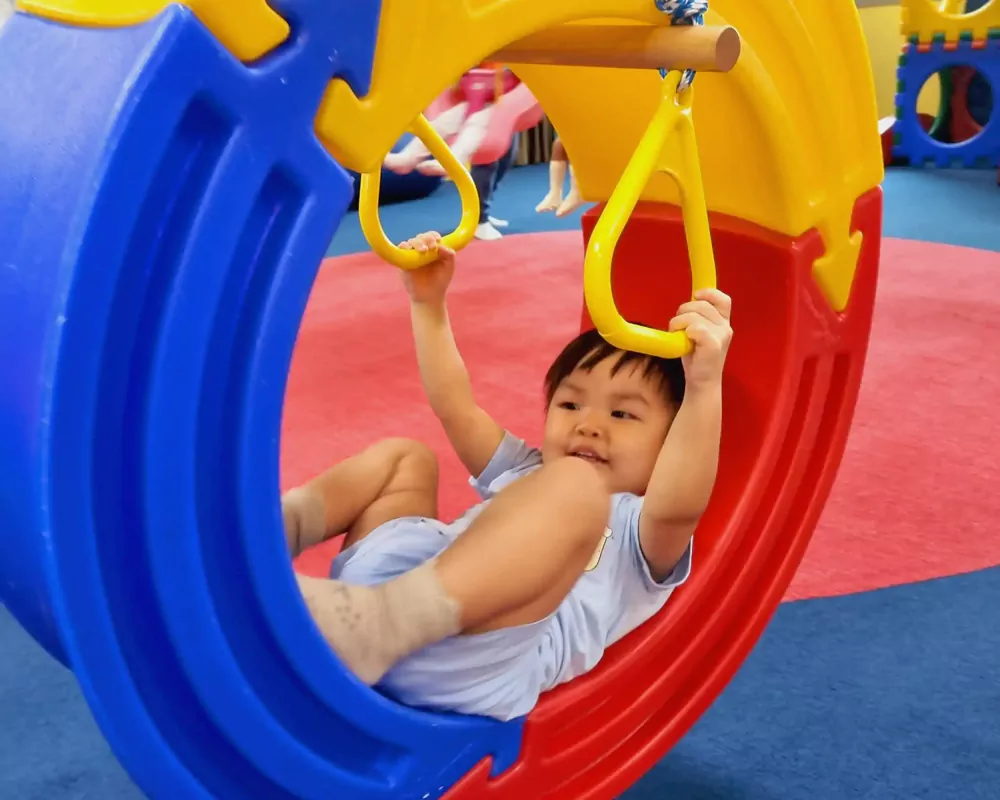
Among the most important activities to encourage independence in your child is to always listen
to what she has to say. Listening to your child with full attention is among the primary tenets of how to make a child independent. This means being fully present and staying engaged when your child talks, regardless of how trivial it may seem or sound to you.
It is why making ‘listening attentively’ a habit. To truly listen to your child, you need to go beyond just hearing her words. It means sitting down with her, making eye contact, and giving her your undivided attention. Whether she is telling you about her day at school or expressing her fears and anxieties, listening attentively shows that you value her thoughts and feelings.
Practice your listening skills till you are near perfect. Because if you dismiss the small things when your child is young, she may not feel comfortable sharing bigger issues as she grows older. Learn more: early childhood development
When your child is upset, it’s important to remember that her emotions are as valid as yours are. Instead of brushing off her concerns with phrases like “Stop being silly,” take the time to understand why she feels that way. By acknowledging her feelings and offering empathy, you help your child feel validated and understood.
By actively listening to your child, you create a strong bond based on trust and mutual respect. She will begin to feel more comfortable sharing her thoughts and experiences with you, knowing that you are there to support her. Additionally, seeing the world through your child’s eyes can be a rewarding experience, offering new insights and strengthening your bonds with your child. Besides, you will get to understand another individual better than you understand yourself!
Give ‘listening attentively’ a try the next time you speak to your child or even your husband. You will be pleasantly surprised by the insights this will let you will garner.
Assigning your child to do household chores
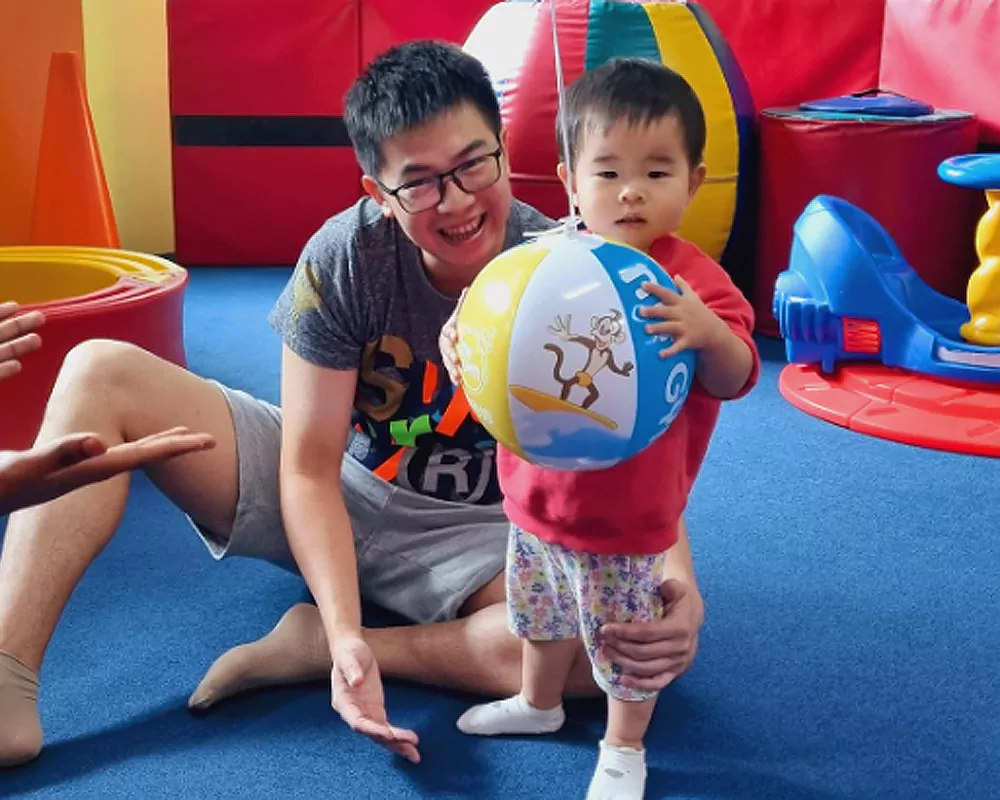
The best way to demonstrate to you on how to raise an independent child is by telling you to start assigning your child household chores. This is also an inscrutable way to teach your child responsibility and the life skills required for living independently. While you don’t want to overwhelm children with tasks beyond their capability, encouraging them to take on small responsibilities is prudent. Simple tasks like cleaning up the play area, putting away toys, or helping with grocery shopping can instil a sense of accomplishment and ownership in a child.
Remember, assigning age-appropriate chores is the key. Younger children can be responsible for tidying their rooms or setting the table, while older children can take on more complex tasks like doing laundry or washing dishes. By gradually increasing the complexity of their chores, you help them develop a sense of responsibility and independence. [Source]
Involving your child in household chores also teaches them other valuable life skills. They learn how to manage their time, organize their belongings, and contribute to the functioning of the household. Additionally, it instils a sense of teamwork and cooperation, as they see how their contributions help the family as a whole.
Don’t keep doing things for your child
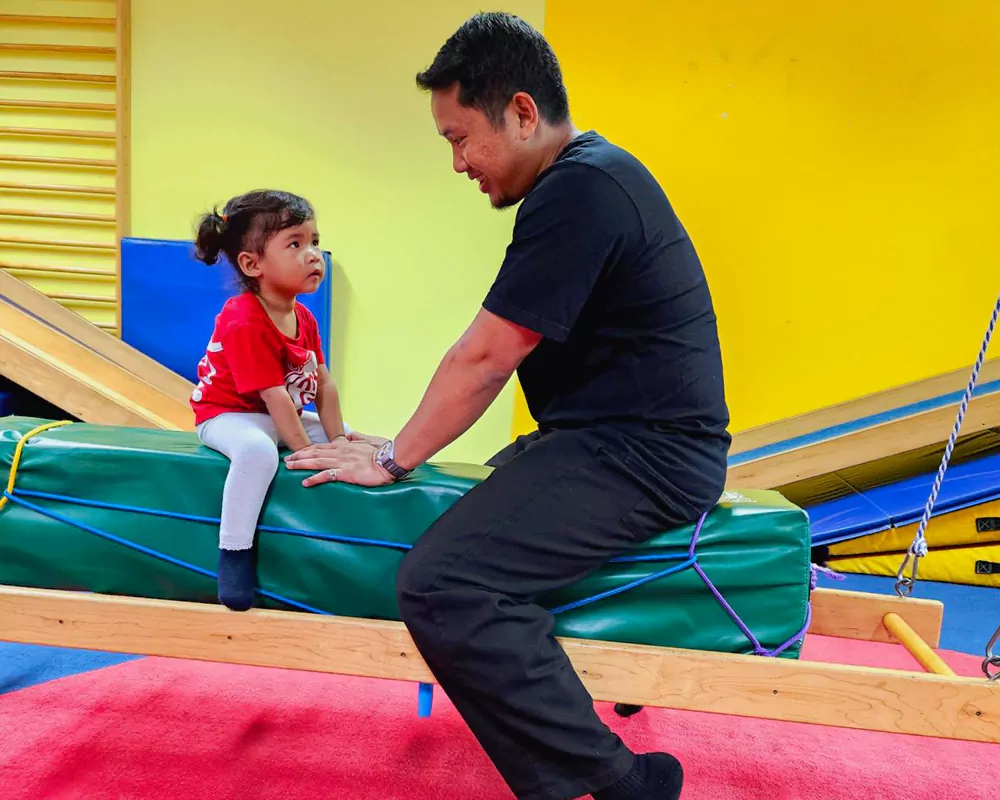
”Don’t keep doing things for your child” is a fundamental principle all parents must bear in mind when they are fostering independence and self-sufficiency in their children. This often starts innocently enough with offering assistance, whether it’s tying their shoelaces, pouring their milk, or helping with homework. However, when you continually intervene and do tasks for them, you inadvertently hinder their development of independence.
This is common and found in almost every household with young children. However, a pattern emerges where parents continue to do these small tasks for their children. Pretty soon your child either expects you to help or begins to doubt her own abilities. Remember, while assisting our children is part of our role as caregivers, continually doing tasks for them that they can manage on their own hinders the development of independence.
As parents, our primary responsibility is to guide our children to move from complete dependence to complete independence. This journey involves gradually empowering them to take on more responsibilities and do tasks on their own. Whether it’s teaching toddlers to zip up their coats or setting curfews for teenagers, our goal is to equip them with the skills and confidence to navigate the world independently. When you fail to do so, you not only impede their progress but also create unnecessary challenges for yourself.
According to Rudolf Dreikurs and Margaret Goldman, “A dependent child is a demanding child. Children become irresponsible only when we fail to give them opportunities to take on responsibility.”
While it may be tempting to do things for our children to expedite tasks, the best approach is to resist this urge and promote self-sufficiency. We should encourage self-sufficiency by allowing them to tackle tasks themselves, even if it takes longer or requires more patience. By doing so, we not only support their development but also make our own lives easier in the long run. By encouraging them, we empower our children to become more capable and confident individuals.
It is OK to make mistakes
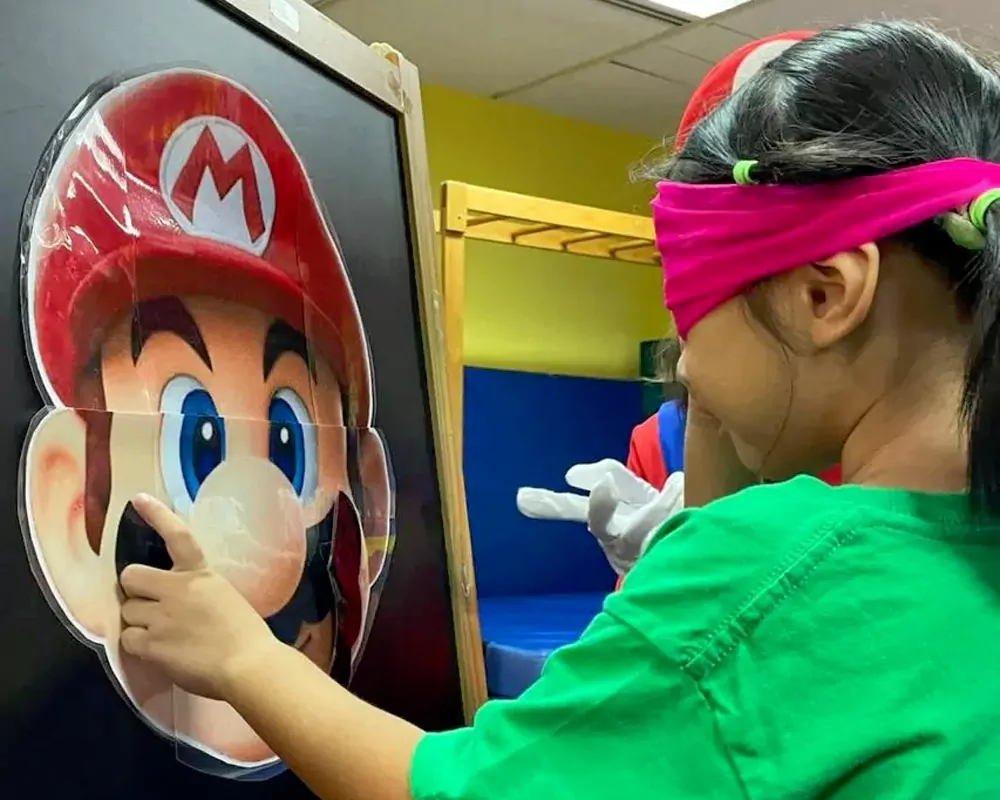
Allowing your child to make mistakes is a crucial aspect of her growth and development. While as parents, we naturally want to shield our children from failure and hardship, it’s essential to strike a balance between protection and preparation for the realities of the world by nurturing an independent child.
At the end of the day, our goal is to raise confident, independent, and resilient individuals, and this process begins in childhood by giving our children the space to learn, make decisions, and yes, make mistakes.
Teaching your child that mistakes are a natural part of the learning process is paramount. Remind your child to embrace setbacks as opportunities for growth rather than dwell on her failures. By fostering a growth mindset, your child will be more inclined to take risks, try new things, and persist in the face of difficulties and challenges.
It’s important to remember that making mistakes indicates that your child is actively engaging with the world, learning new things, and developing important skills. By allowing her to navigate difficult situations on her own, you empower her to hone problem-solving and decision-making abilities, which are invaluable traits for success in life. [Source]
However, it is understandable that giving your child independence can at times evoke feelings of uncertainty or even sadness in parents. It’s natural to feel a sense of nostalgia for the days when your child relied on you for everything. Yet, reframing this sentiment as proof of your success in nurturing independence and life skills in your child will provide reassurance. Remind yourself that your child will always know she can turn to you for support and guidance whenever she needs it.
Granting independence in certain areas will make your child feel easier than when faced with making more complex choices. For instance, allowing your child to choose what she wants to wear versus managing her health and nutrition. This is why it’s important to approach each situation with care.
When it comes to food, educating your child about the importance of a balanced, nutrient-rich diet and instilling healthy eating habits early in her life, lays the foundation for lifelong well-being. Empowering your child to make informed decisions about her diet and health will set her on a path of wellness.
Promoting problem-solving skills
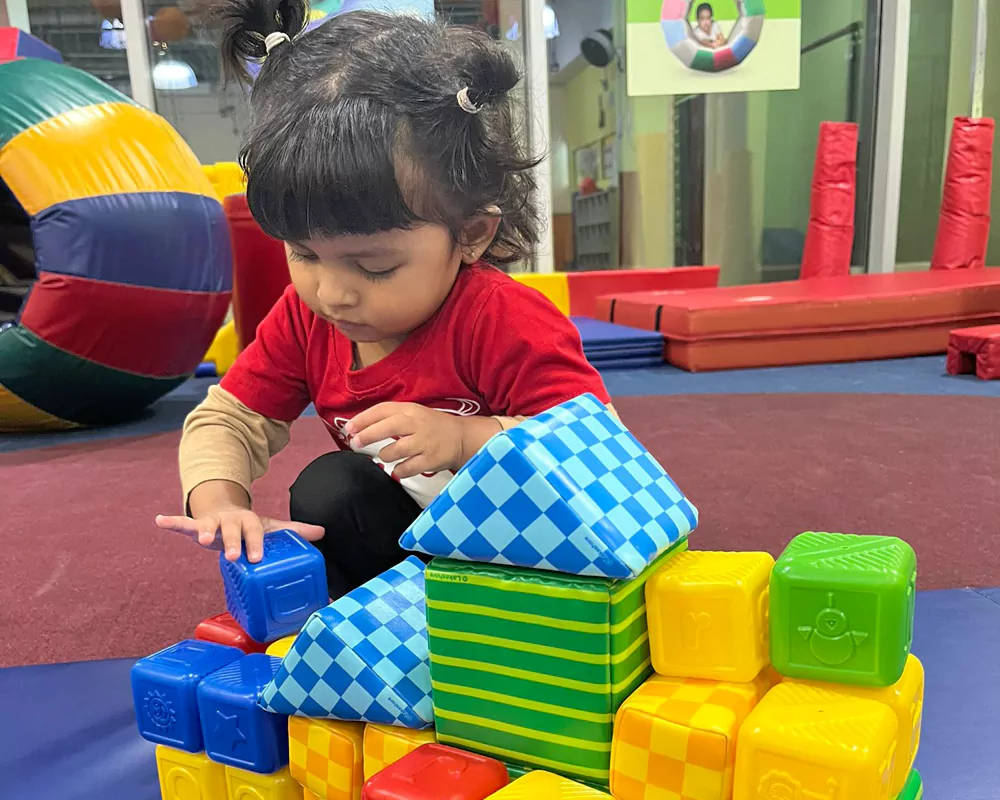
Encouraging children to approach problems with a solution-oriented mindset is a valuable skill that can benefit them throughout their lives. This mindset involves teaching them practical problem-solving strategies that they can apply to various situations on their way to gaining childhood independence.
One effective strategy is to teach children to break down big tasks into smaller, more manageable steps. This approach helps your child to approach challenges systematically, making them less overwhelming. Additionally, brainstorming alternative solutions encourages creativity and flexibility in your child’s thinking. By considering different options, she learns to think critically and explore various approaches to a problem.
Another important aspect of problem-solving is teaching your child when and how to seek help. Encouraging her to ask for assistance when needed teaches your child that it’s okay to seek support and collaborate with others. This skill is crucial for developing effective communication and teamwork skills. Learn more: develop social skills
When your child feels overwhelmed or stuck, she might not know how to solve a problem. But if you give her a simple way to solve problems, she’ll feel more confident to give it a try. Here’s a step-by-step guide:
1. Identify the problem: Help your child to state the problem out aloud. For example, she might say, “I don’t have anyone to play,” or “I’m not sure if I should take the advanced math class.”
- Think of ideas: Come up with at least five ways to fix the problem. They can be silly or unusual — it’s about being creative. If they’re stuck, you can help them think of ideas.
3. Sort the good from the bad: Talk about what could go well or wrong with each idea. This will help your child to understand the consequences of each choice.
4. Choose a solution: After thinking about the good and bad parts, help her pick the best idea.
5. Try it out: Encourage your child to try the solution. If it doesn’t work, she can try another idea from the list.
By equipping your child with problem-solving skills, you can empower your child to tackle challenges independently. These skills not only build confidence but also promote resilience and adaptability, enabling her to navigate life’s ups and downs independently and with confidence.
Striking an ideal balance
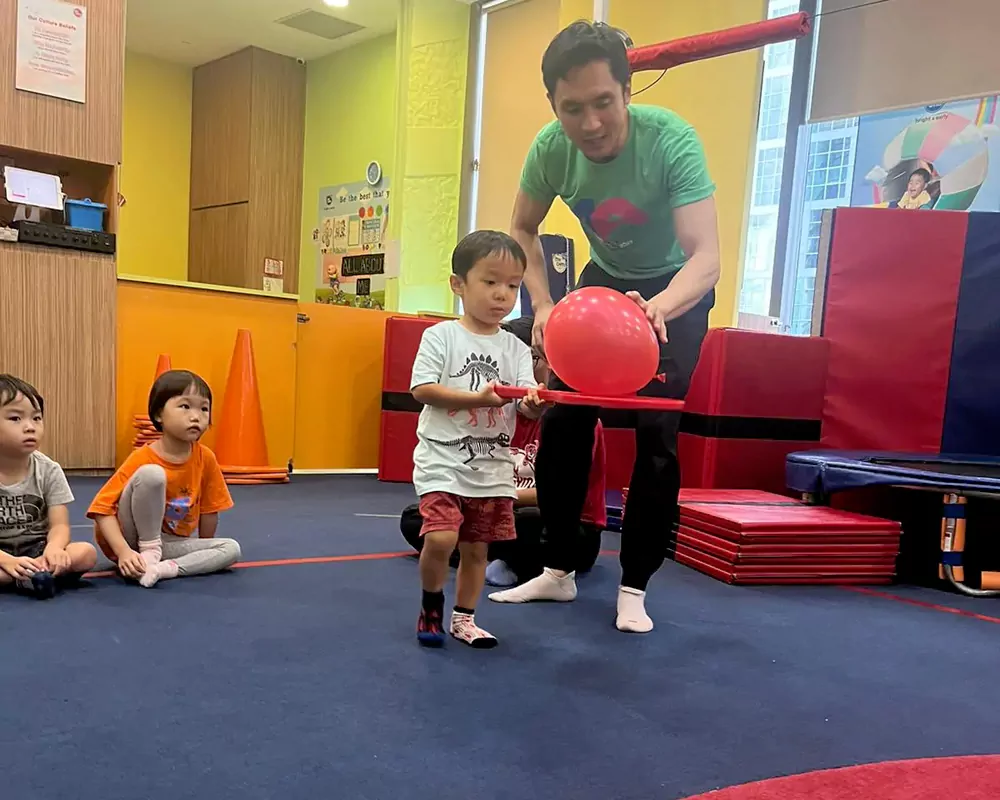
Giving your child freedom within limits is a delicate balancing act. The basic principle to follow is not to be too restrictive but to allow your child to be more independent. Leaving it to your child to make her own decisions but within the boundaries you set, will help develop autonomy, competence, and a sense of belonging in your child.
You could start by offering choices as this is a powerful way to give your child a sense of control over her life. By involving your child in the decision-making processes, whether it’s choosing what to wear or what activities to participate in, you demonstrate that her opinion and preference matter.
Remember, autonomy is the desire for independence and the ability to make choices. This is a zone which often leads to conflicts between a parent and the child. Parents naturally want to be in charge and set rules, while children want more freedom and control. Learn more: early childhood development
This dynamic starts in early childhood and continues through adolescence. In this context, your goal is to create a supportive environment where your child feels empowered to explore, learn, and grow, while also understanding and accepting the boundaries you’ve set. [Source]
Another area of concern is being competent as it boosts internal motivation, and is very crucial for acquiring skills and nurturing independence. Research shows that internal motivation enhances problem-solving skills and performance.
When children understand what to do and feel competent, they become more motivated and tend
to look for better ways to manage a given task. This process creates a positive cycle that supports skill development as well as maintaining a healthy mindset.
Our role as parents is to support children in doing things for themselves, gradually pushing them to build new skills while ensuring that our expectations match their readiness. This means allowing them to make mistakes and tolerating the discomfort when they fail. While this is inevitable, it is essential to ensure that your child’s long-term growth mindset is never compromised.
Finally, relatedness is about making your child experience a sense of belonging as this feeling plays a crucial role in her well-being. When children don’t feel like they belong, it puts them at risk for serious psychological and behavioural issues. Children who feel accepted and loved by their parents tend to be more resilient to stress and can cope better.
Building a strong trusting relationship with your child, however, takes time and effort. The sense of belonging helps your child to develop her own identity and grow up feeling secure. This process is always a work in progress and is incredibly important for your child’s development and overall health.
Ultimately, a strong bond with your child is the foundation for her overall growth. By fostering a sense of belonging, you help your child develop the independence and confidence she needs to navigate the world.
Nurture the ”can do” spirit
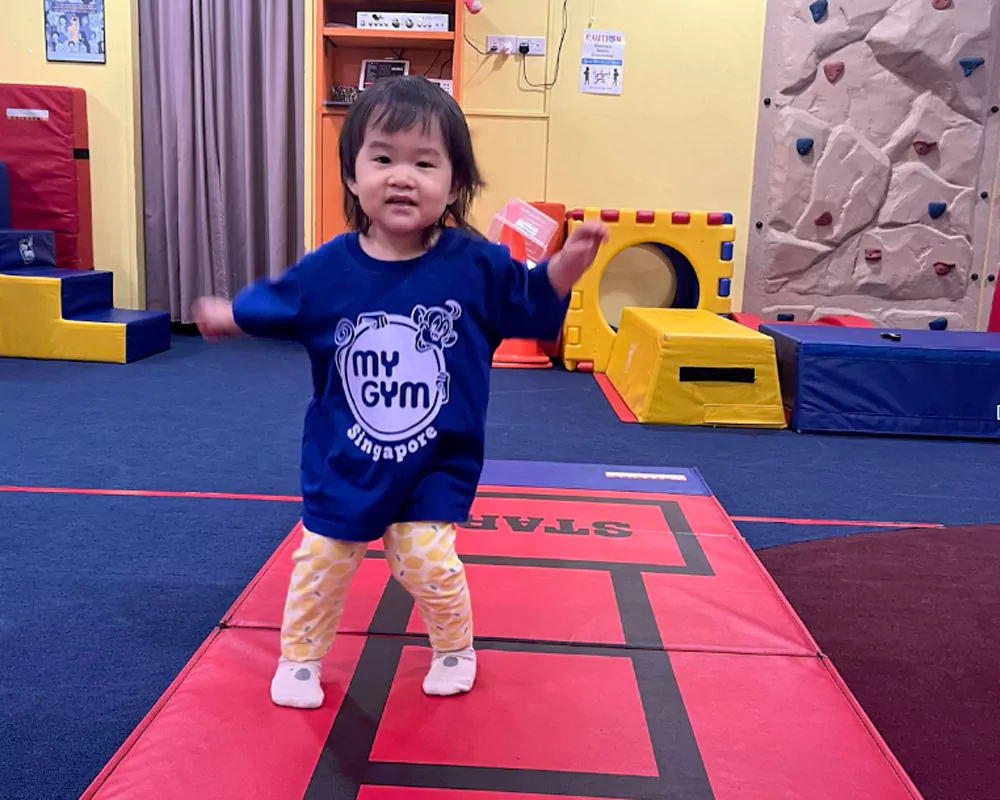 Nourish to flourish emphasizes the importance of creating a positive and empowering environment for children to thrive. In today’s fast-paced world, where change is constant, it’s crucial to recognize that we are not just reacting to life but actively shaping it through our thoughts and actions. We are literally reinforcing the sense of belonging, becoming and being. By fostering a “can do” spirit in ourselves and our children, we will be able to create a reality that aligns with our values and aspirations.
Nourish to flourish emphasizes the importance of creating a positive and empowering environment for children to thrive. In today’s fast-paced world, where change is constant, it’s crucial to recognize that we are not just reacting to life but actively shaping it through our thoughts and actions. We are literally reinforcing the sense of belonging, becoming and being. By fostering a “can do” spirit in ourselves and our children, we will be able to create a reality that aligns with our values and aspirations.
One of the key ways to support your child’s independence and confidence is to nurture her unique strengths and characteristics without pigeonholing her into predefined roles or labels. This means letting go of preconceived notions about who your child should be or what she should become. Instead, you need to embrace your child’s individuality and allow her the freedom to explore and pursue her own interests and talents.
For example, if a child prefers solitary play and is hesitant in social settings, rather than labelling her as “shy” or “introverted,” acknowledge it to be her preference for independence and creativity. By reframing our perception and focusing on her strengths, such as imagination or problem-solving skills, you will empower your child to develop these abilities further.
It’s important to avoid defining your child based on her current behaviours or characteristics, as these traits will evolve. By offering positive feedback and encouragement, you can help build confidence and resilience, enabling and preparing your child to navigate challenges and make informed decisions in the future.
While it’s natural to enjoy being needed by our children, our ultimate goal as parents is to guide them towards independence. This process may seem daunting, but by encouraging independence from a young age, we equip them with the skills and mindset to become proactive and self-reliant individuals.
By nurturing our children’s spirit and encouraging independence, we help them develop into confident, capable individuals who are ready to face the world with resilience and determination.
Encouraging your child to be independent is like a gift that will benefit your child for a lifetime. As a parent, witnessing your child take a proactive role in her everyday life can be intimidating. However, empowering her to be independent not only prepares your child for the future but also builds your confidence as a parent.
Knowing that you have equipped your child with the skills and mindset to navigate the world on her own fills you with pride and reassurance. It gives you the strength to let her step out into the world and confidently conquer whatever challenges come her way.
How My Gym can help
At My Gym, the aim is to increase exposure to new experiences so that your child can develop the confidence to cope and thrive in a rapidly changing world. Exposing children to new things teaches them that no matter how different some things might seem, they can overcome their fears.
My Gym not only gives your children the certainty that they can do something difficult but enhances their motivation, resilience and tenacity. All necessary for success, no matter how big or small the goals. Self-confidence and independence are the key factors to achieving almost anything.
The toddler and preschool developmental phase is a time of huge change for children. The brain undergoes significant growth, and these little people are continuously learning about the world and their place in it. Children in this age group will naturally start gaining independence, however, it is important to constantly reinforce it and nurture this sense of security and confidence.
Remember, confidence in the virtual world (although important), is not the same as confidence in the real world. At My Gym, your child will be encouraged to interact with real people and engage in doing real things. Self-confidence is something that can be achieved and My Gym is here to show you how!
Please visit any of My Gym centres to learn more about how it supports “whole-child development”. Choose a day when you are relatively free and come over with your child in tow. Your child could be an infant (as young as 6 months), a toddler or a preschooler, age is not a bar. Discover how your child can learn, pick up new skills just by looking, listening and doing. Then decide to join. Grow up in the real world!
Please note: My Gym classrooms are thoroughly sanitized every day — the tables, the chairs, the children’s activity stations and everything else the child might touch is made safe and clean. Whenever required, children are encouraged to wear a mask, wash their hands frequently, and practice social distancing as well.



